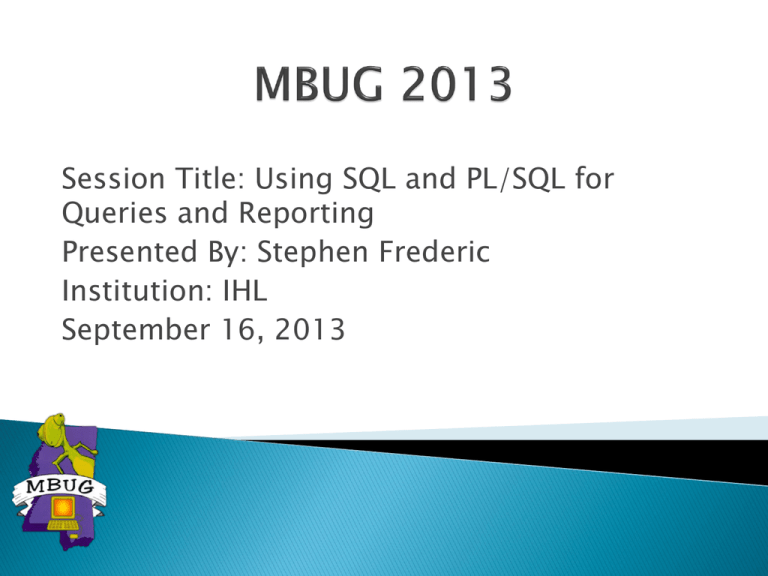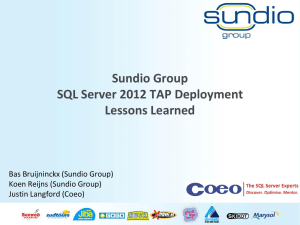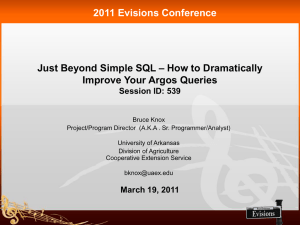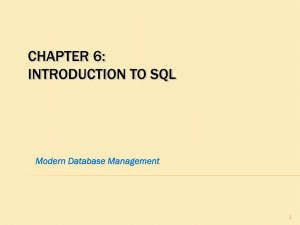Using SQL and PL/SQL for Queries and Reporting
advertisement

Session Title: Using SQL and PL/SQL for Queries and Reporting Presented By: Stephen Frederic Institution: IHL September 16, 2013 Please turn off your cell phone If you must leave the session early, please do so discreetly Please avoid side conversation during the session Intro to SQL Parts of an SQL statement Performing SQL queries Intro to PL/SQL Parts of PL/SQL file Using SQL in PL/SQL Writing PL/SQL reports Structured Query Language Used for managing data held in a relational database management system Initially developed by IBM in the early 1970s SELECT – data fields retrieved from tables FROM – table name(s) WHERE – conditions using operators to filter what data is retrieved AND OR LIKE IN BETWEEN Equal to: = Not equal to: != or <> Greater than: > Less than: < Greater than or equal to: >= Less than or equal to: <= IS or IS NOT Spool – saves query results in a file ◦ spool filename Everything following ‘spool’ is written to file When finished ‘spool off’ SELECT spriden_first_name, spriden_last_name FROM spriden WHERE spriden_id = ‘902580337’ AND spriden_change_ind is null; Procedural Language/Structured Query Language Oracle’s procedural extention to SQL Can use conditional statements such as if/then/else as well as loops Handles errors and exceptions Declaration Execution Exception Begins with ‘DECLARE’ Is optional Where SQL cursors are written for use in execution section Defines variables Variables can also be initialized Example: ◦ age number(2); ◦ message varchar2(12) := ‘Hello World’; Starts with ‘BEGIN’ and ends with ‘END’ Is mandatory Where if/then statements, loops, and cursors are used Begins with ‘EXCEPTION’ Optional Handles errors so blocks terminate without problems Useful when updating or deleting information in tables Found in Declaration section Where SQL statements are written Variables can be passed to cursors for dynamic queries Loops OPEN, FETCH, CLOSE ◦ Pass variables in OPEN ◦ FETCH into variable names ◦ CLOSE when finished Spool on/off can be written into PL/SQL file Dbms_output ◦ .put(‘text’) – prints lines, appends to line ◦ .put_line(‘text’) – prints line and then returns to new line Save both SQL and PL/SQL files with .sql extension To run: @filename http://www.techonthenet.com/oracle/ http://www.w3schools.com/sql/











